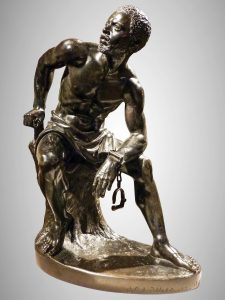
Podcast Transcript
On June 19th, 1865, Union soldiers arrived in Galveston, Texas (the last place of resistance to Lincoln’s Emancipation Proclamation) and announced the end of the Civil War and slavery in the United States. On that day about 250,000 enslaved African Americans in Texas were freed.
These are the stories of men and women who fought and died seeking goodness and righteousness, sacrificing to help us all move closer toward true equality among all people.
These people, many only a little older than children, fought and died for an ideal. For others, they did not even know. They sacrificed not for self-benefit but trying to end the suffering plight of others.
Slavery and the willingness to disadvantage others arise from two parts of being human.
- All humans are slaves from which we all seek emancipation
- Paul wrote Romans 7
For I do not do the good I want, but the evil I do not want is what I do …
I delight in goodness in my inmost self, but in me is another law at war with my mind, making me captive to ways that dwell within me
- The second part is that we do not see one another as family. Instead, we see external differences and allow them to blind us to our oneness. We create divisions and boundaries and engage in conflict and exploitation
These two things exist in every person. In all 8 billion of us exist these two ingredients of slavery.
- We remain slaves. We have not discovered the secret to true human liberation. To end the law within that holds me captive
- We choose to see externals rather than see the truth of our deeper oneness as family, as one people
On this great day of celebration, June 19th, let us continue as one the great march to Emancipation.
- Let us support one another as we each and all try to break the bonds of the internal laws that enslave us.
- Let us discover the poison and find the cure that makes people see superficial differences, rather than our oneness as family
